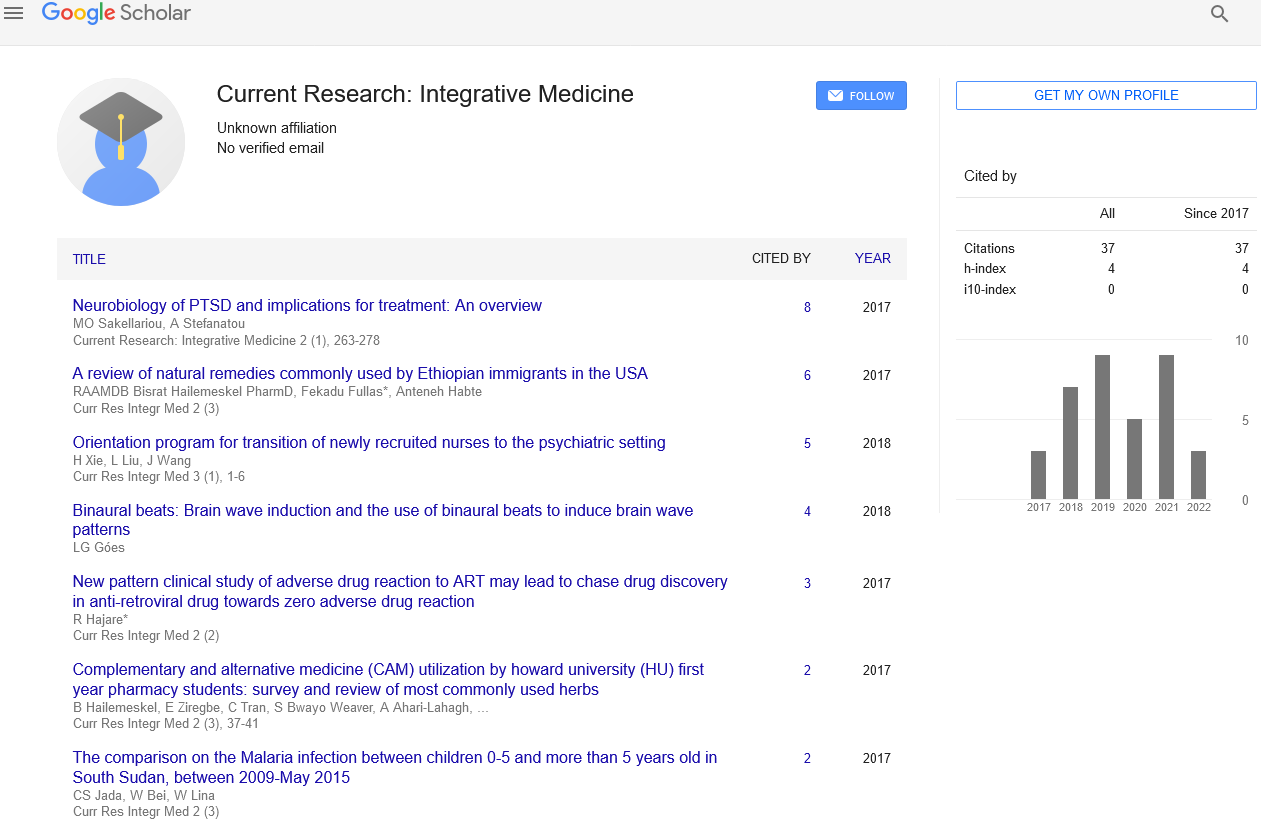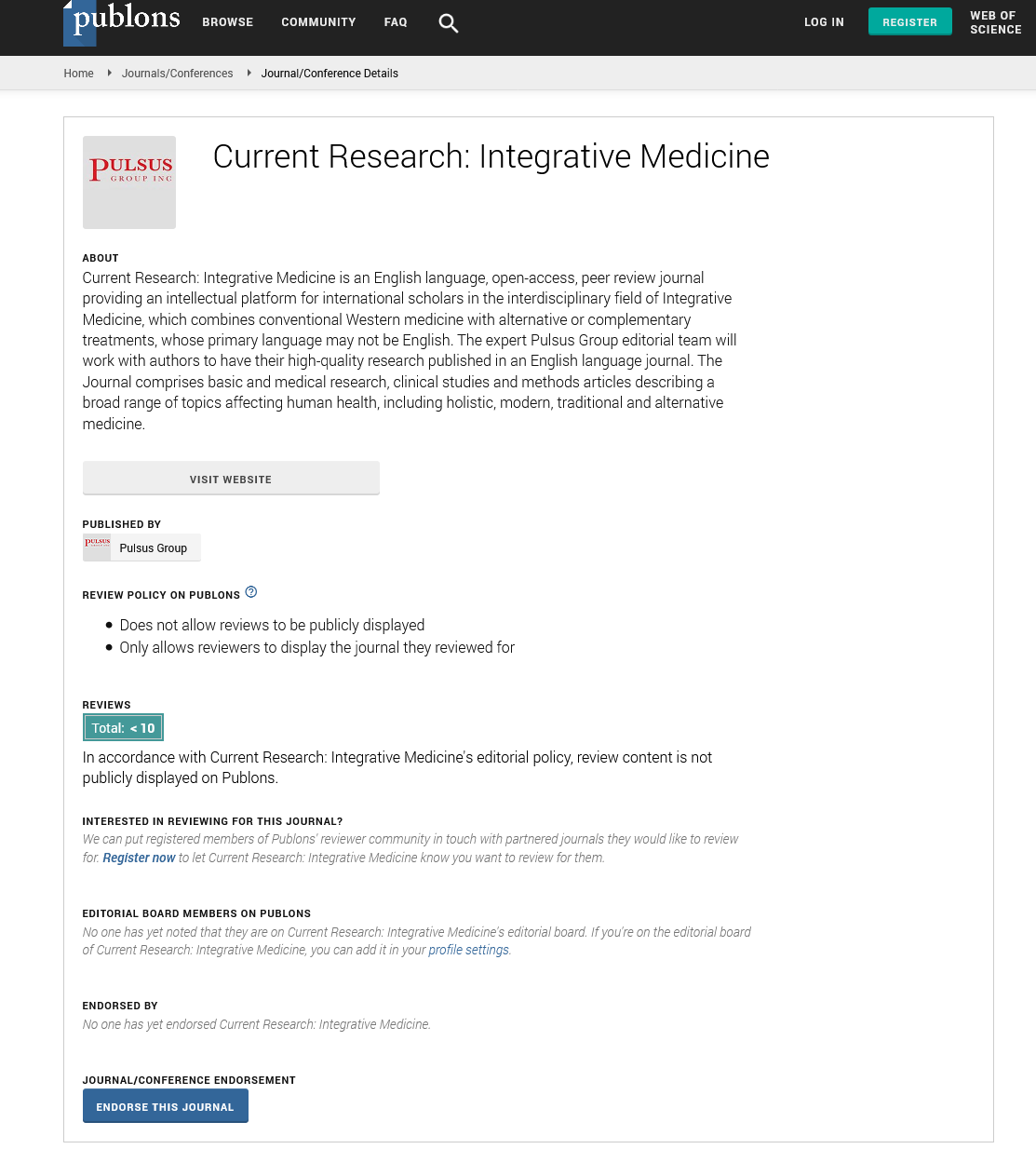Genomics: Unraveling the blueprint of life
Received: 23-Jul-2024, Manuscript No. pulcrim-24-7123; Editor assigned: 25-Jul-2024, Pre QC No. pulcrim-24-7123(PQ); Reviewed: 31-Jul-2024 QC No. pulcrim-24-7123(Q); Revised: 03-Aug-2024, Manuscript No. pulcrim-24-7123(R); Published: 10-Aug-2024
This open-access article is distributed under the terms of the Creative Commons Attribution Non-Commercial License (CC BY-NC) (http://creativecommons.org/licenses/by-nc/4.0/), which permits reuse, distribution and reproduction of the article, provided that the original work is properly cited and the reuse is restricted to noncommercial purposes. For commercial reuse, contact reprints@pulsus.com
Abstract
Genomics, the study of the entire genetic material of an organism, has revolutionized our understanding of biology and medicine. This article delves into the foundations of genomics, tracing its historical development and highlighting key advancements. The implications of genomic research span various fields, from personalized medicine to evolutionary biology. We explore the technologies that have propelled genomics forward, the ethical considerations it entails, and the future prospects of this dynamic field. Through a comprehensive examination, we aim to elucidate how genomics is reshaping science and society.
Key Words
Genomics; DNA sequencing; Personalized medicine; Genetic variation; Ethical considerations
Introduction
Genomics, the comprehensive study of an organism's entire genetic material, has transformed scientific research and medicine in unprecedented ways. Since the discovery of the DNA double helix structure by Watson and Crick in 1953, the field of genetics has evolved rapidly, culminating in the emergence of genomics. Unlike traditional genetics, which often focuses on individual genes, genomics encompasses the entire genome, providing a holistic view of an organism's genetic blueprint.
The advent of high-throughput DNA sequencing technologies has been a game-changer, allowing scientists to decode genomes at an astonishing pace and accuracy. This capability has led to groundbreaking discoveries about genetic variations, disease mechanisms, and evolutionary processes. Moreover, the application of genomic knowledge in personalized medicine holds the promise of tailored treatments based on an individual's genetic makeup, potentially revolutionizing healthcare.
This article provides an in-depth exploration of genomics, tracing its historical milestones, technological advancements, and diverse applications. We also address the ethical and societal implications of genomic research, as well as the challenges and future directions of this rapidly advancing field.
Historical development of genomics
The journey of genomics began with the foundational work of Gregor Mendel in the mid-19th century, whose experiments with pea plants laid the groundwork for the science of genetics. However, it wasn't until the mid-20th century that the molecular basis of heredity was uncovered. The discovery of the DNA double helix by James Watson and Francis Crick in 1953 marked a pivotal moment in biology, providing a structural framework for understanding genetic information.
The subsequent decades witnessed significant advancements in molecular biology techniques, culminating in the Human Genome Project (HGP). Launched in 1990 and completed in 2003, the Human Genome Project (HGP) was an international endeavor that successfully mapped the entire human genome, comprising approximately 3 billion base pairs. This monumental achievement not only provided a reference for human genetic variation but also spurred the development of new technologies and computational methods for analyzing genomic data.
Technological advancements in genomics
The rapid progress in genomics has been fueled by continuous innovations in DNA sequencing technologies. The transition from Sanger sequencing, the first method used to sequence DNA, to Next-Generation Sequencing (NGS) has been particularly transformative. NGS technologies, such as Illumina sequencing, have dramatically increased the speed and reduced the cost of sequencing, making it feasible to sequence entire genomes routinely.
Moreover, the advent of third-generation sequencing technologies,such as Pacific Biosciences' Single Molecule Real-Time (SMRT) sequencing and Oxford Nanopore Technologies' nanopore sequencing, has further revolutionized the field. These technologies offer longer read lengths and real-time sequencing capabilities, enabling more accurate assembly of complex genomes and detection of structural variations.
Bioinformatics tools and computational algorithms have also played a crucial role in genomics. The vast amount of data generated by highthroughput sequencing requires sophisticated software for alignment, variant calling, and functional annotation. Advances in machine learning and artificial intelligence are increasingly being integrated into genomics, enhancing the ability to interpret complex genetic data and uncover novel insights.
Applications of genomics
The applications of genomics are vast and diverse, spanning multiple disciplines and sectors. One of the most significant impacts of genomics is in the field of medicine, particularly in the development of personalized or precision medicine. By understanding the genetic basis of diseases, clinicians can tailor treatments to individual patients, improving efficacy and reducing adverse effects. For example, pharmacogenomics examines how genetic variations affect drug metabolism and response, enabling the prescription of medications that are most effective for a patient's genetic profile.
Genomic research has also advanced our understanding of complex diseases such as cancer, diabetes, and cardiovascular disorders. Cancer genomics, for instance, involves the sequencing of tumor DNA to identify mutations driving cancer progression, which can guide targeted therapies. Additionally, genomics has facilitated the identification of genetic risk factors for common diseases, enabling early diagnosis and preventive measures.
In agriculture, genomics has revolutionized crop and livestock breeding. Genomic selection, which involves using genetic information to predict the performance of breeding candidates, has accelerated the development of high-yielding, disease-resistant varieties. This approach not only enhances food security but also contributes to sustainable agriculture by reducing the reliance on chemical inputs.
Moreover, genomics has profound implications for evolutionary biology and ecology. By comparing the genomes of different species, scientists can reconstruct evolutionary relationships and trace the genetic basis of adaptation. Metagenomics, the study of genetic material recovered directly from environmental samples, has opened new windows into the diversity and functioning of microbial communities in various ecosystems.
Ethical and societal considerations
While the advancements in genomics offer tremendous potential, they also raise important ethical and societal issues. The ability to sequence and interpret genomes brings forth questions about privacy, consent, and the potential misuse of genetic information. For instance, the storage and sharing of genomic data must be carefully regulated to protect individuals' privacy and prevent discrimination based on genetic information.
Furthermore, the prospect of gene editing technologies, such as CRISPR-Cas9, has sparked debates about the ethical implications of modifying the human germline. While gene editing holds promise for correcting genetic disorders, it also raises concerns about unintended consequences and the potential for creating "designer babies."
Equitable access to genomic technologies and healthcare is another critical consideration. As genomics becomes increasingly integrated into clinical practice, it is essential to ensure that all populations benefit from these advancements, regardless of socioeconomic status. Addressing these ethical and societal challenges requires robust regulatory frameworks, public engagement, and interdisciplinary collaboration.
Future prospects of genomics
The future of genomics is poised to bring even more transformative changes to science and society. Emerging technologies such as singlecell genomics, spatial transcriptomics, and epigenomics are providing unprecedented insights into cellular heterogeneity and gene regulation. Single-cell genomics, for instance, allows researchers to examine the genetic and transcriptomic profiles of individual cells, revealing intricate details about cellular functions and interactions.
Synthetic biology, which involves the design and construction of new biological parts and systems, is another frontier in genomics. By leveraging genomic knowledge, scientists can engineer microorganisms for various applications, including biofuel production, bioremediation, and the synthesis of valuable compounds.
In the realm of medicine, the integration of multi-omics approaches combining genomics with proteomics, metabolomics, and other omics data promises to provide a more comprehensive understanding of health and disease. This holistic perspective can lead to the development of novel biomarkers and therapeutic targets, paving the way for more precise and effective medical interventions.
Furthermore, the continued expansion of genomic databases and the application of artificial intelligence are expected to accelerate the discovery of new genetic associations and functional elements. Collaborative efforts, such as global genomics initiatives and datasharing platforms, will be crucial for harnessing the full potential of genomic research and addressing complex biological questions.
Conclusion
Genomics has fundamentally transformed our understanding of biology, medicine, and the natural world. From the sequencing of the human genome to the development of personalized medicine, the advancements in genomics have opened new avenues for scientific exploration and practical applications. However, the rapid pace of progress also necessitates careful consideration of ethical, legal, and social implications to ensure that the benefits of genomics are realized equitably and responsibly.
As we continue to decode the blueprint of life, the future of genomics holds immense promise. By integrating cutting-edge technologies, fostering interdisciplinary collaboration, and addressing societal challenges, genomics will undoubtedly remain at the forefront of scientific innovation and discovery.






